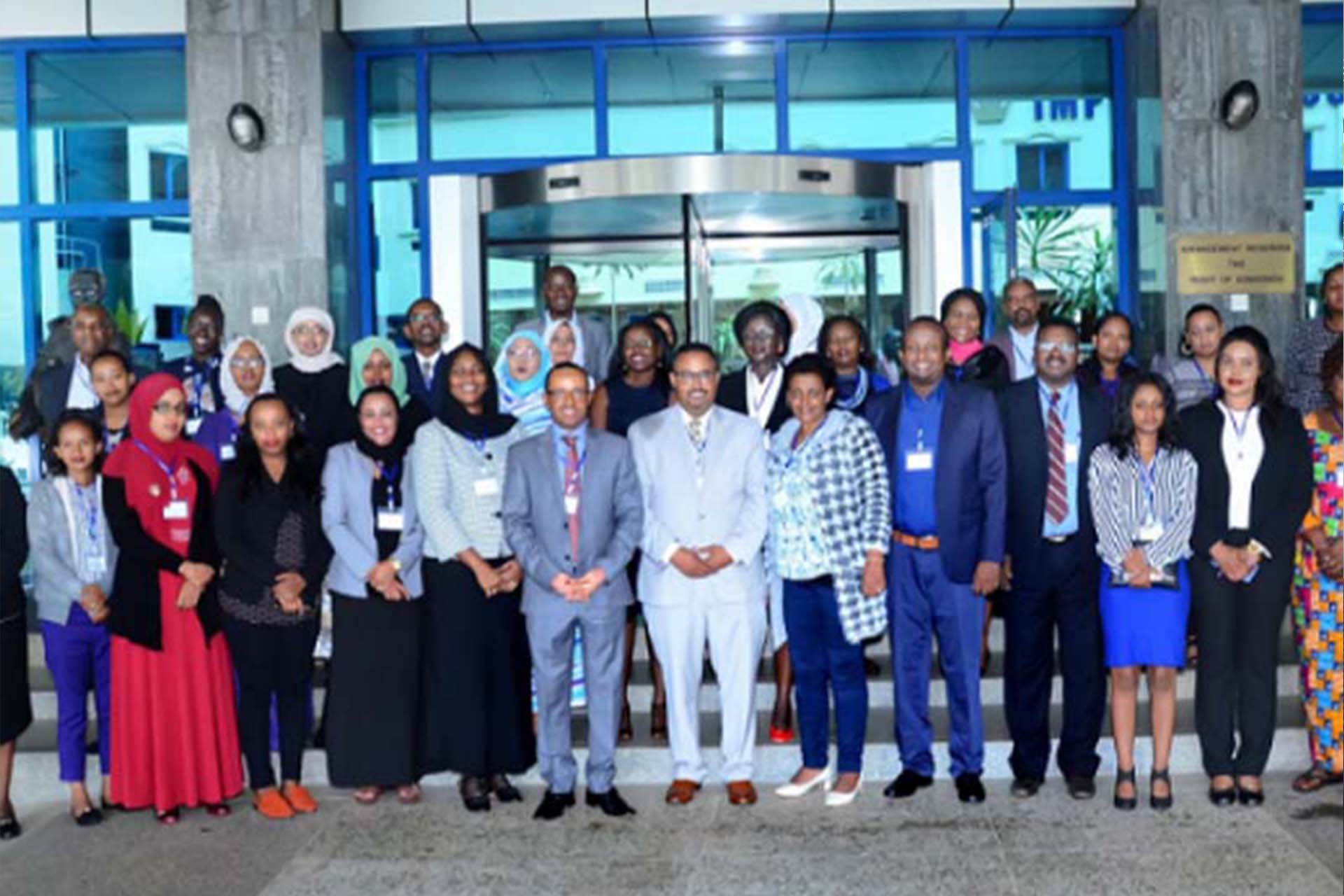The IGAD region is a source, transit and final destination of a wide range of common transnational security threats. The region faces or contends with a variety of serious and complex common Emerging, Evolving and Existing Transnational Security Threats (EEE-TSTs), including terrorism, extreme violent radicalization, organized crime, piracy, cybercrime, and trafficking in drugs, humans and weapons — to name but a few. The security architecture of the region has evolved significantly over the past decade, but the nature and variety of transnational security threats has been evolving even further and faster.
IGAD Security Sector Program (IGAD SSP) is a comprehensive regional program of the Intergovernmental Authority on Development (IGAD) established and restructured in the year 2011 from its previous focused program of the IGAD Capacity Building Program Against Terrorism (ICPAT) launched in 2006. IGAD SSP has the mandate of preventing and countering the Transnational Security Threats (TSTs) including terrorism, transnational organized crime (TOC) and maritime insecurity as well as providing capacity building for the security sector institutions of Member States. The objectives of IGAD SSP are to contribute to the effective prediction, prevention and management of the EEE-TSTs as well as to the enhancement of member states’ capacity to address security threats contributing to security and stability of Member States and the region thus, engendering sustainable economic development. IGAD-SSP has the following three tier complimentary approach to address EEE-TSTs:
- Strengthen regional cooperation and coordination;
- Enhance member states’ and IGAD’s institutional and human capacities; and
- Promote and support the signing, ratification and domestication of relevant regional and international legal instruments.
TSTs have caused social, economic and political menaces in our globalizing world with the increasing trends of movement of people and goods across borders. TSTs have evolved through time in line with socio-economic, political and economic changes. The overall level of awareness about the consequences of the existing TSTs to IGAD member states and their citizens remains relatively low across all member countries. There cannot be effective mechanisms to prevent and control crimes and the threats they pose without appropriate, accurate and timely information and knowledge about the characteristics and features of the criminal activities and their networks. It is through knowledge about the nature, typologies and the behaviours of the criminal networks that we can enhance our capacity building efforts to prevent and counter TSTs through knowledge-based decision making at policy and operational levels – a proactive crime prevention and management approach.
The general conclusion is that attempts at countering insecurity will entail putting into operation a grand strategy and mechanism revolving around the State, regional and community-based engagements. To this end IGAD SSP has been carrying out various activities to support the efforts of the Member States in preventing and countering such threats. It has been engaging all relevant stakeholders from both State and Non-State Actors like the law enforcement agencies, various ministries, policy makers including parliamentarians, CSOs, and the media on various interventions aimed at contributing to the national and regional efforts. These interventions are through:
- the provisions of theme focused trainings to enhance the capacity, skills, and knowledge of practitioners in dealing with various forms of criminal matters, and
- conducting and sharing the findings and recommendations of various in-depth national and regional assessments or researches on the vulnerability of the threats by Member States, capability of the relevant institutions, mechanisms of dealing with the threats, and other identified areas on need-based approach
The results of these interventions have made significant contributions in enhancing the capacity of Member States as well as creating various networks among the institutions for strong cooperation and coordination including sharing of criminal information. In addition, legal instruments such as the IGAD Mutual Legal Assistance and Extradition Conventions and other pertinent regional, continental and international instruments have been supported that resulted in the adoption, domestication and developing of the national legal instrument within the States providing effective legal frameworks in dealing with the various forms of the transnational security threats.
IGAD SSP continues to engage and support the Member States at all levels within regional mechanism to prevent the security threats. As stated above, ccountering the EEE-TSTs requires a common regional framework and effective security cooperation and coordination between states that facilitate criminal information and intelligence sharing; mutual legal assistance and extradition; joint operations capable of investigating, prosecuting and convicting complex transnational cases. To this end, IGAD SSP has been working, through the full consensus by all Member State, towards having an institutionalized regional cooperation and coordination platform for effecting prevention and countering of such threats. Having these regional platform and coordination mechanism is believed to contribute to the overall peace and security of the region and beyond.
By:
Nejat Abdulrahman Issa
Counter Terrorism Capacity Building Program Officer
August 27, 2021

